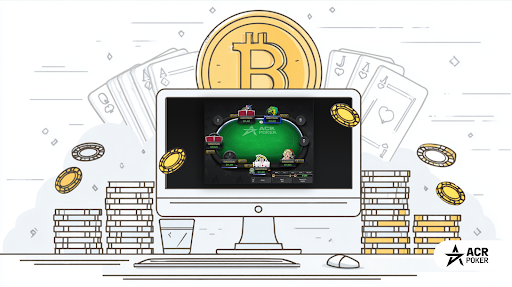As digital privacy concerns intensify worldwide, the demand for anonymous casinos has surged, offering a unique alternative to traditional online gambling. Anonymous casinos, in essence, enable users to play casino games, deposit funds, and withdraw winnings with minimal—sometimes nearly nonexistent—personal identification requirements. Instead of submitting a trove of documents or complying with extensive KYC (Know Your Customer) processes, players can often simply sign up using an email address and use cryptocurrencies to transact.
This shift targets privacy-minded players but introduces a distinct trade-off: the mental effort required to manage anonymity often comes at a psychological and logistical cost. Deciding whether an anonymous casino is worth this extra mental load involves examining these pros and cons, with a clear-eyed analysis of the real risks and rewards.
What Sets Anonymous Casinos Apart?
The central appeal of anonymous casinos is their minimal data footprint. Unlike regulated online casinos run by major brands in Europe, North America, or Australia—which are bound by anti-money-laundering laws and must collect identity documents—anonymous platforms leverage crypto payments and decentralized systems to strip players of most digital footprints.
Key Features
- Minimal Registration: Typically just an email and password.
- Crypto Payments: Bitcoin, Ethereum, and other crypto transactions, supporting faster, (usually) cheaper transfers.
- No or Limited KYC: Verification documents are largely unnecessary except in select situations or for high withdrawal amounts.
- Global Accessibility: Players can access platforms from a wider range of jurisdictions, bypassing local regulatory blocks.
However, these features also reframe the risks—particularly regarding trust and user protection. Regulatory oversight is limited, so users must often rely on the reputation and transparency of the operator.
The Mental Load: What Does It Actually Mean?
Choosing to participate in an anonymous casino is about more than strategic privacy; it’s a holistic decision that impacts a player’s psychological well-being, sense of safety, and even routine financial management. The “mental load” refers to the ongoing cognitive effort required to manage risks, securely store crypto keys, stay on top of security protocols, and handle potential customer-service challenges—all without the safety nets provided by regulated gambling environments.
Security and Peace of Mind
Players must take on enhanced responsibility for the integrity of their funds and accounts. If you lose access to your crypto wallet or fall victim to a phishing scam, there’s little recourse:
“Opting into anonymity shifts the burden of security squarely onto the individual gambler. It’s a form of trustless responsibility—freeing, but also unforgiving if mistakes are made,”
says Anna L. Stanton, an online gaming cybersecurity consultant.
Beyond security, there’s the secondary strain of constantly verifying a casino’s legitimacy and ongoing fairness. Independent audits and provable fairness technologies are common selling points, but deciphering whether a platform is genuinely safe requires research and digital savvy.
Weighing the Pros and Cons: Is It All Worthwhile?
Many gamblers are drawn to the allure of privacy and financial flexibility. However, that appeal should be carefully weighed against the overhead of risk mitigation.
Potential Benefits
- Privacy Preservation: No personal financial or identity information is stored by the operator, reducing the chance of data leaks or personal info being accessed in hacks.
- Circumventing Restrictions: In some regions where gambling is highly regulated (or banned), anonymous casinos may seem like the only entryway for enthusiasts.
- Fast Transactions: Crypto deposits and withdrawals are, in many cases, swifter than traditional banking channels.
- Flexible Banking: Support for various crypto tokens enables more flexibility for those already comfortable in the blockchain ecosystem.
Major Downsides
- Reduced Player Protections: No recourse if the casino refuses payouts; no authority to appeal to in case of disputes.
- Navigating Volatility: Cryptocurrency values can swing wildly, making it harder to predict wins and losses in traditional currency.
- Regulatory Gray Area: Operating on the fringes often means limited transparency and, sometimes, a breeding ground for outright scams.
- Ongoing Vigilance: Players must educate themselves on transaction security, decentralized finance risks, and avoid basic errors like losing access to private keys.
Case studies abound: For instance, several high-traffic anonymous casinos, such as those operating solely on blockchain smart contracts, have found loyal user bases—but each has its own history of technical glitches or delayed payouts, and trust remains an ever-present question.
Decision-Making Framework: Should You Accept the Extra Mental Load?
To make a well-informed choice, consider this multi-step assessment:
1. Assess Your Privacy Priorities
If safeguarding your identity is critical—perhaps due to local regulations or personal preference—an anonymous casino presents an appealing path. However, weigh just how much inconvenience or risk you are prepared to accept in exchange for this benefit.
2. Evaluate Your Technical Competence
Anonymous casinos demand a foundation in crypto basics: using wallets, tracking tokens, and protecting digital assets. If remembering complicated passwords or two-factor authentication is daunting, the risks multiply.

3. Analyze Trust & Platform Reputation
Seek out platforms with visible, third-party audits and active community involvement. Still, be prepared for the reality that, without regulatory protection, all trust ultimately rests on the operator’s good faith and your own due diligence.
4. Consider Your Risk Tolerance
Can you afford to lose access to deposited funds? Are you ready to accept that gambling disputes may go unanswered? If these potential scenarios seem unacceptable, the mental load may outweigh the privacy upside.
5. Examine Long-Term Utility
Ask whether your purpose is casual gaming, high-volume play, or simply accessing games banned in your jurisdiction. For occasional fun, the overhead might not be justified—whereas high-stakes or privacy-sensitive individuals may find the trade-offs acceptable.
The Regulatory Landscape and Future Outlook
Global regulatory bodies are gradually acknowledging the growth of anonymous casinos, directing attention toward anti-money-laundering (AML) frameworks and crypto compliance. While outright bans are rare, several markets have increased pressure on such sites, threatening their future accessibility and stability.
This evolving environment means players face heightened uncertainty. On the other hand, new blockchain transparency tools and smart contract-driven casinos could offer a middle ground: partial anonymity with automated fairness audits.
Conclusion: Making a Confident, Calculated Decision
The decision to use an anonymous casino is rarely black-and-white. For those who value privacy above all and possess the technical skills to offset platform risks, these sites present a viable—if demanding—option. On the other hand, for most casual gamblers, the added mental workload, risk of lost funds, and lack of institutional support can outweigh the privacy payoff.
The right move balances your personal need for privacy, your appetite for risk, and your willingness to independently manage security, all while acknowledging that anonymity always exacts a price in extra responsibility. Proceed with caution, educate yourself, and never gamble more than you can afford to lose—in any context.
FAQs
What is an anonymous casino?
An anonymous casino is an online gambling site that allows players to register and play without providing traditional identity documents. Typically, these platforms use cryptocurrency transactions and minimal registration details to maintain player privacy.
Are anonymous casinos legal?
The legality of anonymous casinos depends on local laws regarding online gambling and cryptocurrency use. While some regions tolerate or ignore these sites, others have explicit restrictions or bans—so always review your local regulations before joining.
What are the biggest risks with anonymous casinos?
Risks include lack of regulatory oversight, potential non-payment of winnings, increased vulnerability to scams, and the possibility of losing access to funds through wallet mismanagement or crypto volatility. There is also no governing body to mediate disputes.
Can you trust payouts and fair gaming at anonymous casinos?
Trust varies widely between platforms. Some use provable fairness and publish third-party audits, but in the absence of regulation, all assurances depend on the operator’s integrity and community reputation.
What mental load should players expect?
Players need to manage their own security, from private key and crypto wallet safety to ongoing assessment of platform legitimacy. This self-reliant approach increases cognitive effort compared to playing at regulated, KYC-compliant casinos.
Is using an anonymous casino ever truly “worth it”?
For privacy-focused, tech-savvy users willing to accept higher risks and responsibilities, anonymous casinos may be worthwhile. For most, however, the extra mental load and potential downsides make traditional, regulated casinos a safer, lower-effort option.












Leave a comment